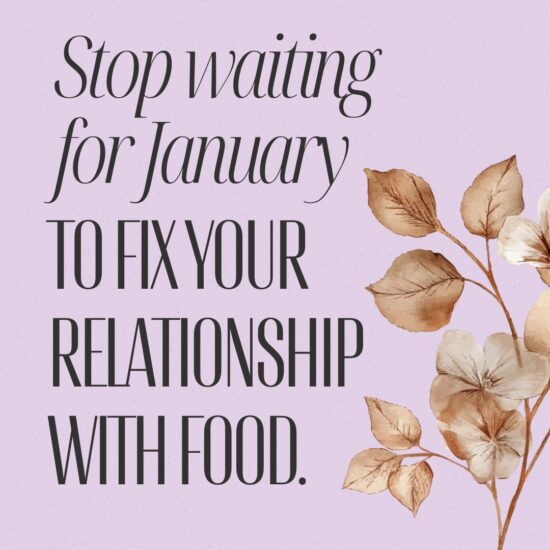Are you struggling with food despite following popular advice? Maybe you’re trying to moderate but still falling into binge cycles. Or perhaps you’ve been told that “everything in moderation” is the only healthy approach, yet it never works for you. If so, understanding the difference between being an abstainer vs moderator might be the breakthrough you need.
Why Some Recovery Approaches Fail While Others Succeed
Have you ever wondered why there’s such conflicting advice about how to handle food, alcohol, or other potentially problematic substances? Furthermore, why do some people thrive with occasional indulgences while others spiral into destructive patterns after just one “cheat meal”?
The answer lies in a fundamental personality difference that affects how we approach temptation and habits. Some people are natural moderators, while others are abstainers. Recognizing which category you fall into can dramatically change your recovery journey.
What’s the Difference Between an Abstainer vs Moderator?
Abstainers: The All-or-Nothing Approach
Abstainers do best with clear boundaries and firm rules. For them, completely avoiding trigger foods or behaviors is actually easier than trying to indulge occasionally. In fact, abstainers often say that “99% compliance is hard, but 100% is easy.”
Characteristics of abstainers include:
- Finding complete avoidance simpler than partial limits
- Struggling with “just one bite” scenarios
- Experiencing “cheat days” as potential triggers for binges
- Feeling more freedom when clear boundaries are established
- Often being labeled as having “no willpower” when they’re simply trying to moderate against their nature
Moderators: The Flexibility Approach
Conversely, moderators thrive on flexibility and balance. They can have a few bites of dessert and walk away satisfied. They might enjoy an occasional drink without it affecting their overall lifestyle. For them, strict rules feel suffocating and unsustainable.
Characteristics of moderators include:
- Finding pleasure in occasional indulgences
- Easily leaving food on their plate when satisfied
- Naturally implementing “80/20” approaches to eating
- Feeling restricted and rebellious under strict rules
- Often struggling to understand why abstainers “can’t just have a little”
Why The “Moderation in Everything” Advice Can Be Harmful
Unfortunately, our culture heavily promotes moderation as the ideal approach for everyone. “Everything in moderation” is practically a cultural mantra, recommended by many health professionals, influencers, and well-meaning friends.
However, this one-size-fits-all advice can be deeply harmful to abstainers. When abstainers try to follow moderation-based approaches, they often experience:
- Repeated cycles of failure and shame
- Confusion about why “normal” approaches don’t work for them
- A deepening sense that something is wrong with their willpower
- Worsening of disordered eating patterns
- Feelings of isolation and being misunderstood
The reality is that for many abstainers, moderation never worked and never will. And that’s completely okay.
How to Determine If You’re an Abstainer or Moderator
Identifying whether you’re an abstainer or moderator can transform your relationship with food. Here are some reflective questions to help you determine your natural tendency:
- Do you find it easier to avoid trigger foods completely or to have small amounts occasionally?
- When you’ve been most successful with healthy habits, did you follow strict guidelines or flexible rules?
- Does having “just a taste” satisfy you or trigger cravings for more?
- What happens on your “cheat days”—controlled indulgence or potential binges?
- Do you feel more peace with clear boundaries or with flexibility?
Your honest answers to these questions can provide valuable insight into your natural tendencies.
Embracing Your Abstainer Nature in a Moderation-Focused World
If you’ve discovered you’re an abstainer, here’s how to thrive in a world that often doesn’t understand your approach:
1. Recognize the Validity of Your Needs
First and foremost, understand that being an abstainer isn’t a weakness—it’s simply how you’re wired. There’s nothing wrong with needing clear boundaries to thrive. In fact, many successful people use abstinence-based approaches to create extraordinary results in various areas of life.
2. Create Clear, Supportive Boundaries
Instead of fighting your nature, work with it. Establish clear guidelines that support your health goals. Remember, for abstainers, 100% compliance is often easier than 99%.
3. Find Your Abstainer Community
Surrounding yourself with people who understand and respect your approach is crucial. Consider joining our weird and wonderful little community where many abstainers find understanding and support.
4. Communicate Your Needs
Learn to clearly communicate your boundaries to friends and family without apology. A simple “I’ve discovered I do better when I completely avoid X” can help others understand and support your approach.
Supporting Different Recovery Styles
Whether you’re an abstainer or moderator, respect for different approaches is essential. Moderators shouldn’t force abstainers to “lighten up” and try moderation. Similarly, abstainers shouldn’t insist that moderators need stricter boundaries.
Each approach is valid for the person who benefits from it. The key is finding what truly works for you and honoring that truth, even when it differs from popular advice.
Finding Freedom Through the Right Approach
For abstainers who have struggled with moderation-based recovery approaches, discovering abstinence can feel like finally finding the right key for a lock you’ve been trying to open for years. Suddenly, what seemed impossible becomes manageable.
As an abstainer myself, I understand the unique challenges and strengths of this approach. Conscious Bites Self-Paced Online Course helps abstainers who have tried moderation and found it doesn’t work for their recovery journey.
Ready to Explore What Works for You?
If you’re tired of forcing yourself into moderation approaches that don’t work for you, I’m here to help. Whether you’re an abstainer looking for support or still trying to determine your natural tendency, personalized guidance can make all the difference.
Want to explore whether abstinence-based approaches might be right for your recovery? Check out my free recovery resources or consider getting the Conscious Bites Self-Paced Online Course to help you rebuild trust with food.
You can also sign up for my Recovery Newsletter for regular insights and support tailored to various recovery styles, or download my free Eat-With-Awareness Bundle designed specifically for women who want to stop the chaos around food.
Remember, the most effective approach is the one that works for YOU—not what works for everyone else.
Contact me today to learn more about how understanding your abstainer vs moderator tendency can transform your recovery journey.
Are you an abstainer or moderator? I’d love to hear about your experiences! Reach out directly to discuss how this insight might transform your recovery journey.




